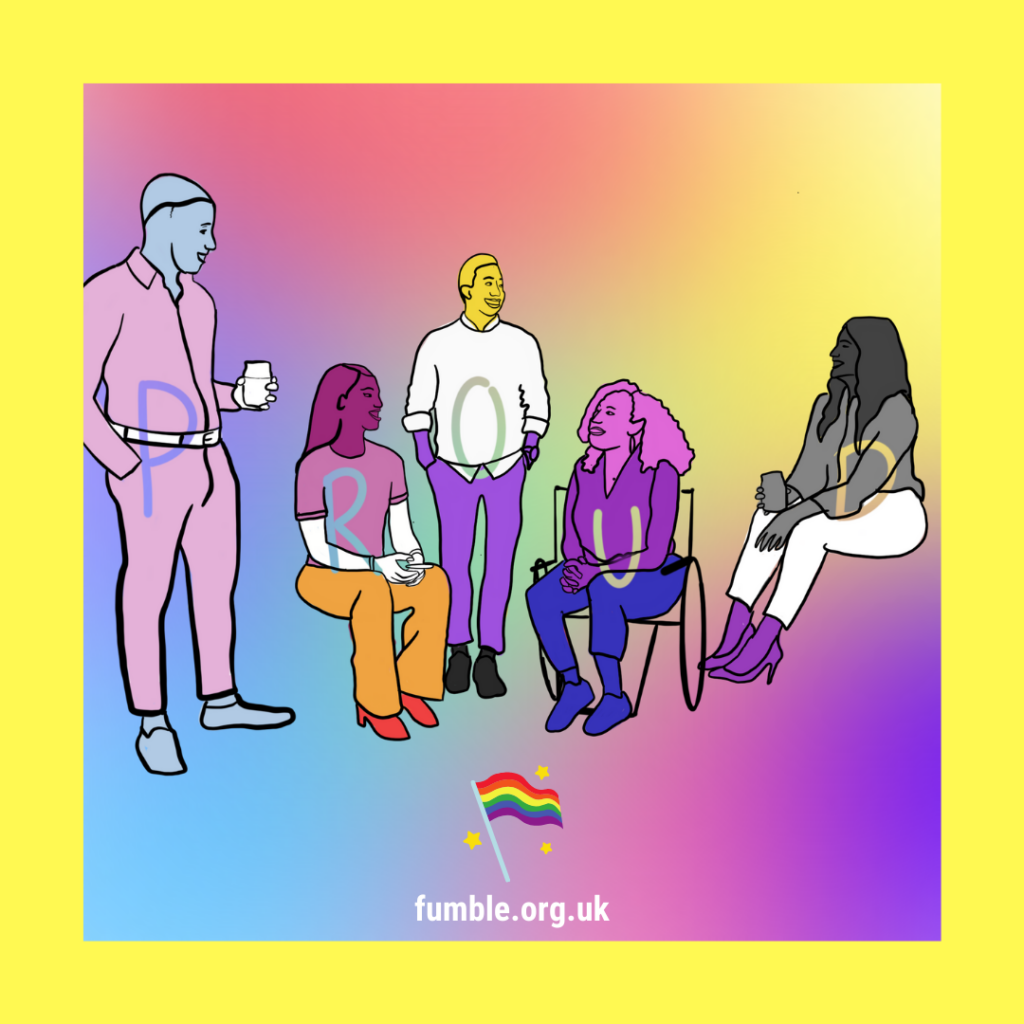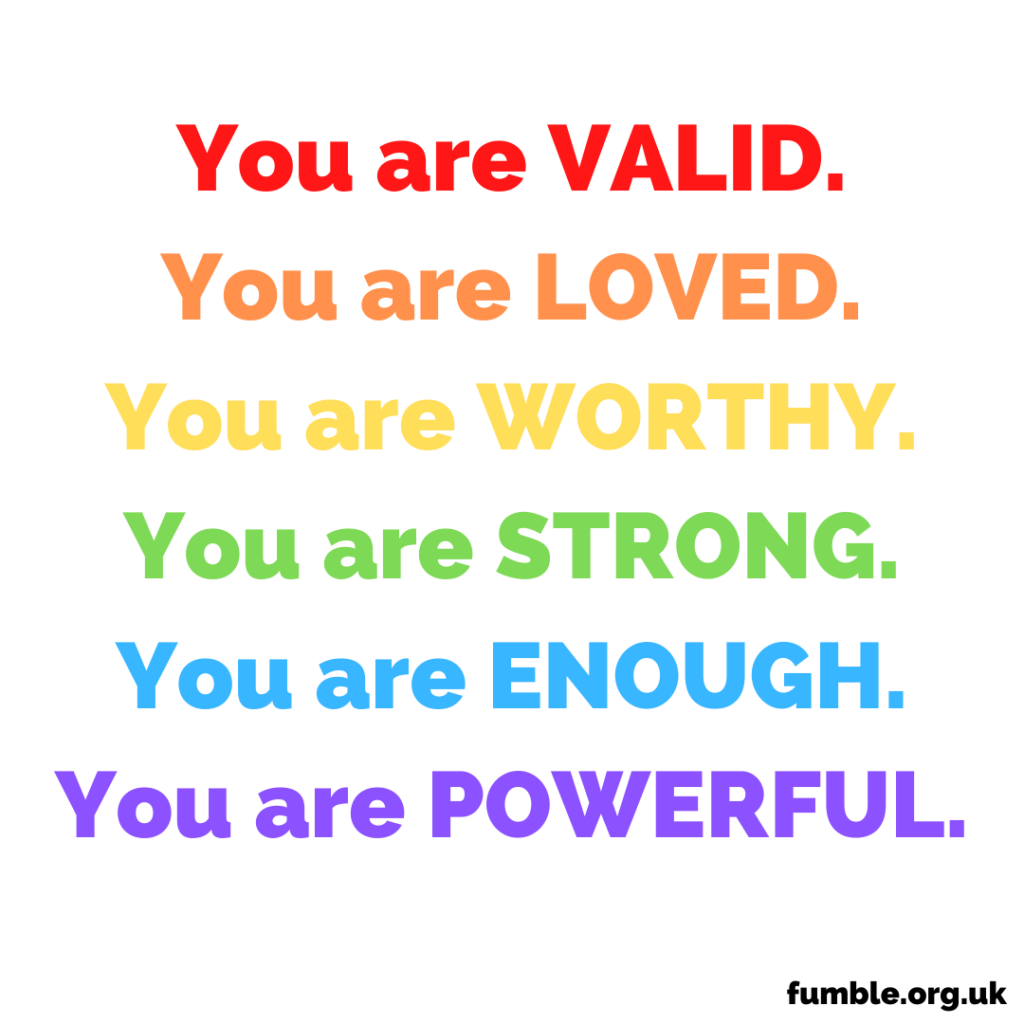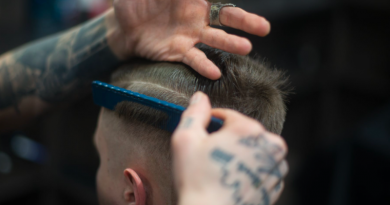Coming out: 7 tips and suggestions
Not sure how to start talking to people about your sexuality or gender identity? Check out these tips for getting started
For some people, coming out is never an issue. But for others, it can be a pretty big deal. At Fumble, we think there’s nothing better than celebrating your sexuality and/or gender identity. We also know that sharing it with someone else, especially if it’s for the first time, can feel pretty daunting. So, here are some tips and suggestions for people who want to come out, but aren’t sure where to start.

This should be your decision, not anyone else’s
But lots of LGBTQ+ people feel pressured to come out before they’re really ready. This might be because they feel guilty over ‘lying’ about their identity. Their friends and family might ask them awkward questions about their dating life and history. Or they might feel that, as society is generally more accepting today, they shouldn’t be scared of coming out. We shouldn’t be pressuring people to come out before they’re ready. You should only come out when you know that doing so will make you feel happier, more free and less worried, than not being out makes you feel.
Think about who you want to come out to first
Instead of a mass text or a social media post, it can be a good idea to initially talk to a trusted friend or family member. That way you can experience how it feels to come out, find a way of phrasing it that you’re comfortable with, get the chance to experience someone’s reaction, and have a discussion about it afterwards.
Think about what else you have going on
It would be great if everyone was supportive, informed and tolerant about people’s sexuality and gender identity – but sometimes they aren’t. Someone reacting badly to your coming out can be a horrible experience, and might make existing stresses even harder to deal with. Have a think about how resilient you’re feeling, and make sure you have people who love and support you around!
If you can, talk to people going through similar experiences
Having an LGBTQ+ and LGBTQ-positive network around you can really help build confidence in your sexuality/gender identity. Plus, if you know people who understand what you’re going through, you will be in a better position to tell others about your experiences, and help them understand.

Choose your moment
Coming out should be about you. Pick a time when you know you’ll have the time and opportunity to say what you want to say, and listen to what your family and friends have to say. Big family occasions, like a wedding, an hour before you leave for university, or Christmas Day, are not always the best times to let your Pride flag fly. These can be distracting and emotional events, and people might not have the time to talk openly with you about your sexuality/gender identity.
Come out with a clear head
Alcohol can be an excellent social lubricant! But if you’re drunk or hungover, you might end up saying something you didn’t plan to, and may not be in the best state of mind to deal with the response you get.
Bear in mind that coming out may not always end with total acceptance
This is a really tough pill to swallow: the people you love may not react positively to your news, or could need time to adjust. But remember that’s not your fault. Give them space and focus on yourself.

Remember that coming out does not change who you are! Your sexuality and/or gender identity is a really important part of who you are, but it’s not entirely who you are. You’re the same awesome, unique person you have always been. If your friends and family have the slightest bit of sense, they’ll accept that and love you for who you are.
Other support
- LGBTQ+ support services
- Coming out (again)
- Blog: When coming out lasts a lifetime
- Brook – coming out
- Brook – Find LGBTQ+ support near you
Read more
Last Reviewed 11 January 2023
Image Credit: Cecilie Johnsen via Unsplash





